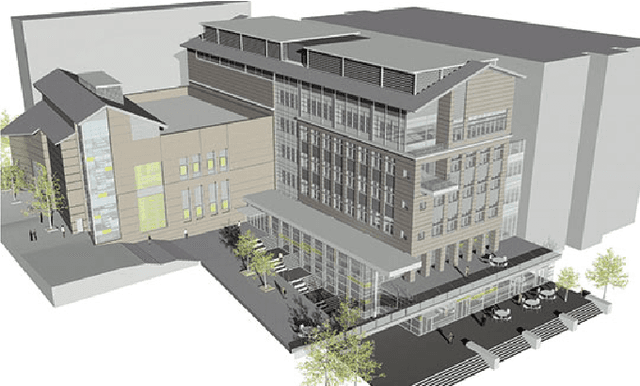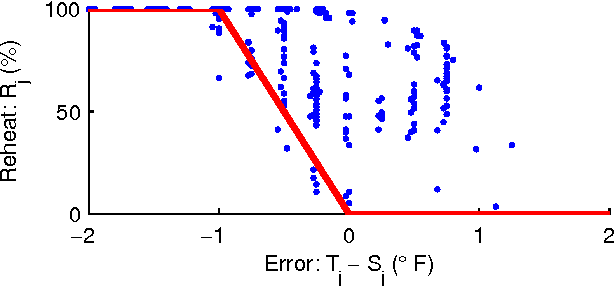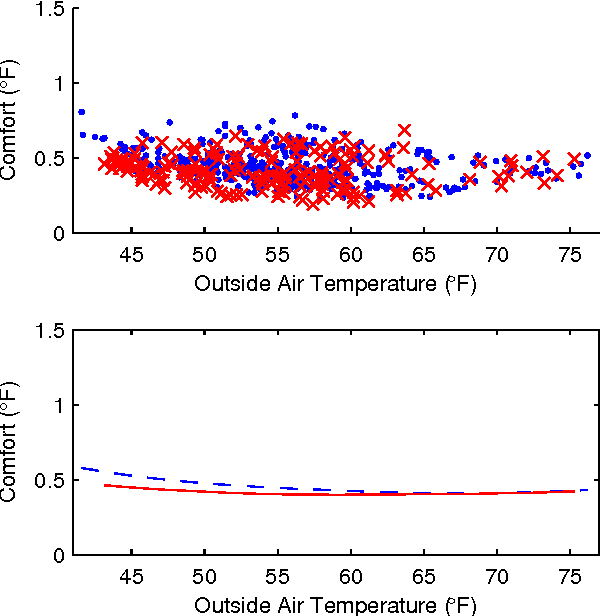Andrew Krioukov
Energy-Efficient Building HVAC Control Using Hybrid System LBMPC
Apr 20, 2012



Abstract:Improving the energy-efficiency of heating, ventilation, and air-conditioning (HVAC) systems has the potential to realize large economic and societal benefits. This paper concerns the system identification of a hybrid system model of a building-wide HVAC system and its subsequent control using a hybrid system formulation of learning-based model predictive control (LBMPC). Here, the learning refers to model updates to the hybrid system model that incorporate the heating effects due to occupancy, solar effects, outside air temperature (OAT), and equipment, in addition to integrator dynamics inherently present in low-level control. Though we make significant modeling simplifications, our corresponding controller that uses this model is able to experimentally achieve a large reduction in energy usage without any degradations in occupant comfort. It is in this way that we justify the modeling simplifications that we have made. We conclude by presenting results from experiments on our building HVAC testbed, which show an average of 1.5MWh of energy savings per day (p = 0.002) with a 95% confidence interval of 1.0MWh to 2.1MWh of energy savings.
 Add to Chrome
Add to Chrome Add to Firefox
Add to Firefox Add to Edge
Add to Edge